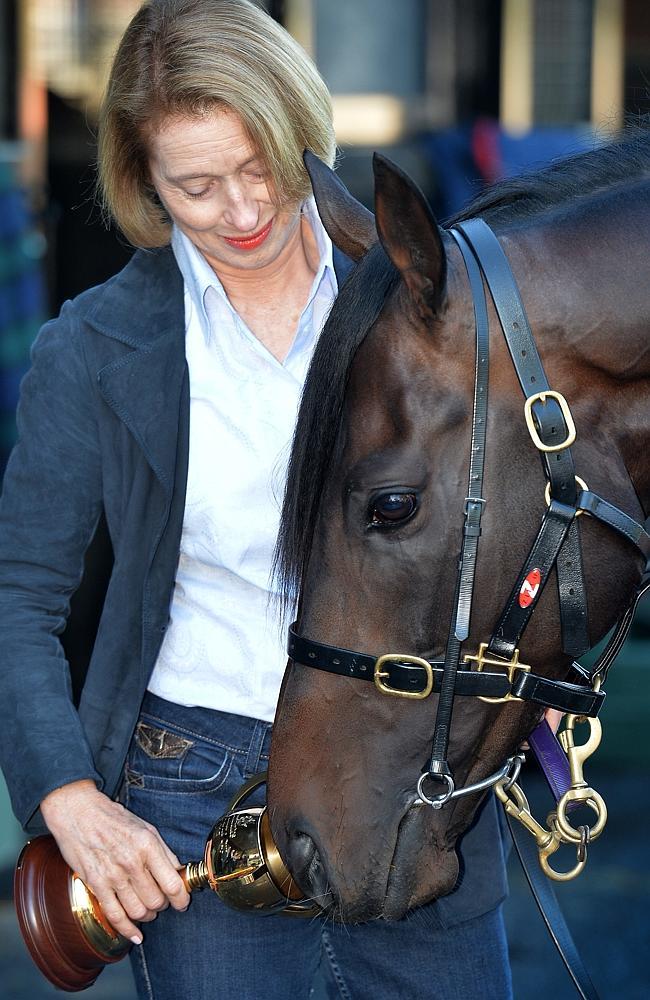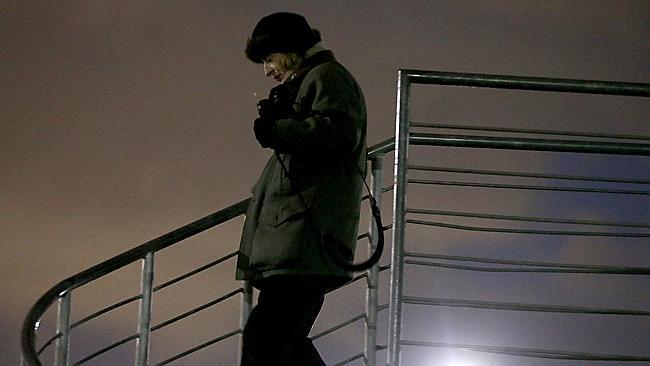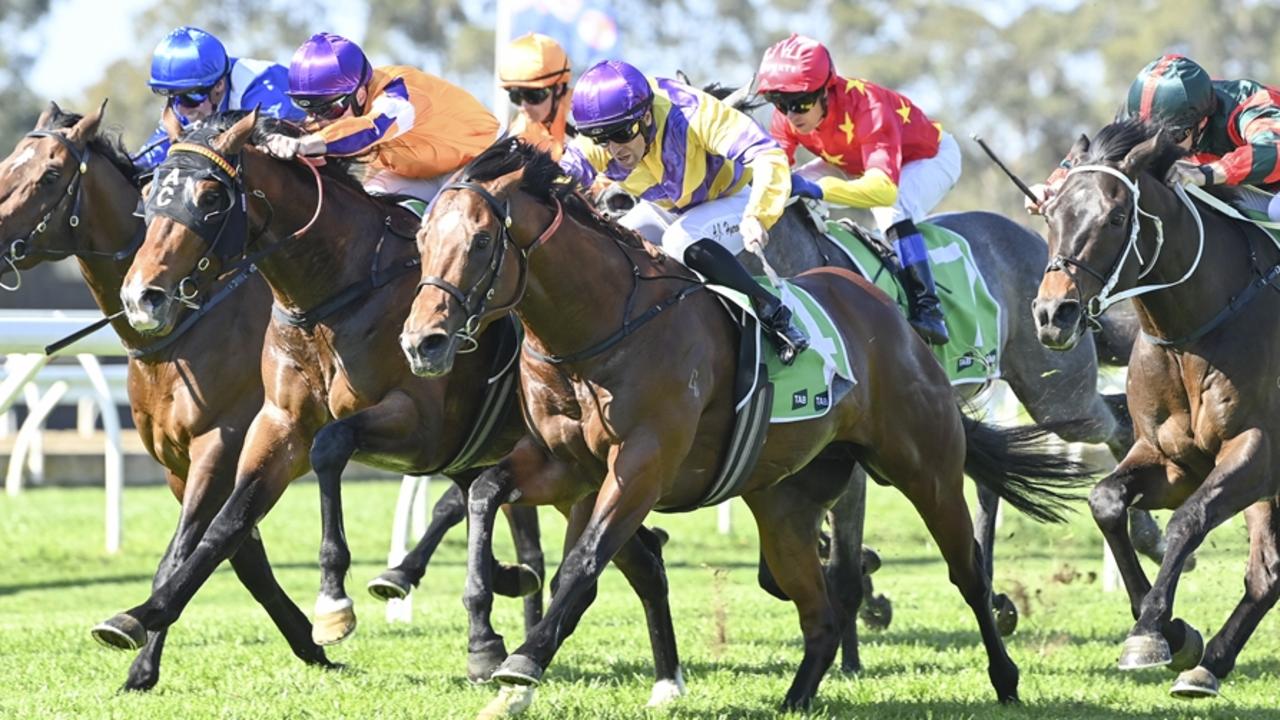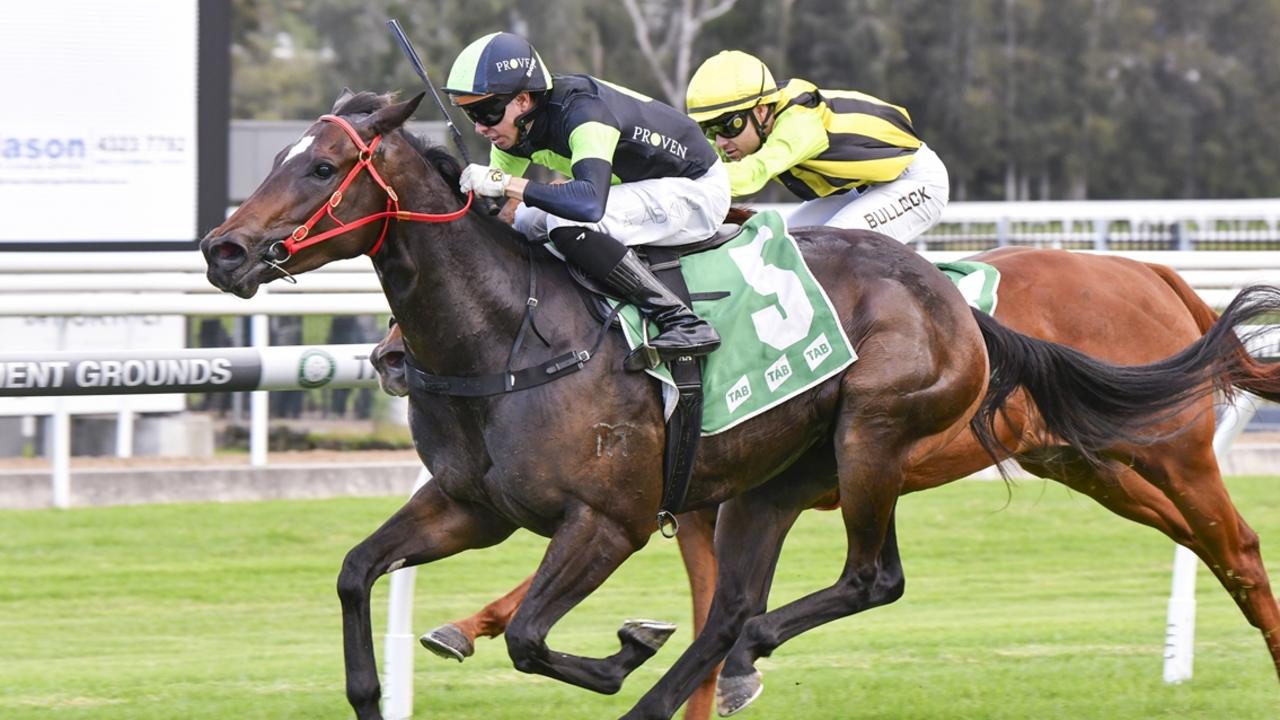Gai Waterhouse distances herself from failed Melbourne Cup syndicate
IT was billed as Gai Living The Dream but in the end only 87 people were attracted to a racing syndicate aiming to win the Melbourne Cup.
IT was billed as Gai Living The Dream but in the end only 87 people gambled on a racing syndicate that aimed to win the Melbourne Cup.
Legendary trainer Gai Waterhouse has already distanced herself from the registered company that at its height tried to attract up to 10,000 shareholders and generate $35 million.
The company was put together by racecaller Bryan Martin, who has been left picking up a “hefty whack” of the bills spent promoting “The Dream” on radio and giant billboards.
“The whole idea was for mums and dads to get involved for $96 a month and Live The Dream of having a horse in the Melbourne Cup,” Martin said.
“Unfortunately, we only attracted 87 people over four months. Their money was held in trust and we have paid them back.”
The company is being wound up and it did not exercise its option to buy 5 per cent of English stayer and highly anticipated Cup runner Excess Knowledge.
Gai Living The Dream chairman Martin O’Connor said: “No other company was looking at $1 million horses that could run in the big races.”

He felt the state of the economy and the collapse of the BC3 Thoroughbreds syndicate may have shaken investor confidence. “It didn’t work out and I would love some expert to tell me why,” O’Connor said.
University of Sydney Professor Phil McManus, the co-author of The Global Horseracing Industry, said conditions favouring Waterhouse in the prospectus “might have made people stop and look more carefully at what was being offered”.
The prospectus was selling up to 10,000 shares at $3500 each, or fortnightly instalments of $48 for a price of $4608. Waterhouse stood to be paid up to $1.5 million in training fees over the four-year life of the company.
Trainers normally take home 10 per cent of any prizemoney but the prospectus said “because of her outstanding record as a trainer” it would pay Waterhouse an extra 5 per cent of any winnings. She also would also pocket 2.5 per cent of the proceeds from any horse sold.

And it added the proviso that prizemoney might not go to the members but instead be used to buy and train more horses.
Professor McManus said: “One of the reasons people invest in the horse racing industry is a sense of ownership. To have a syndicate with up to 10,000 members is alienating.
“The risks may be quite small but the spread of prizemoney would be very limited as well.”
Despite the club carrying her name, training the horses and heavily promoting it at the time, Waterhouse said she had “no real involvement ... although I thought it was a lovely idea’’.
Winners of a Daily Telegraph competition for shares in Gai Living The Dream have instead been given shares in the Cup Club.
“I have spoken to them all and they are all very happy,” Martin said.



